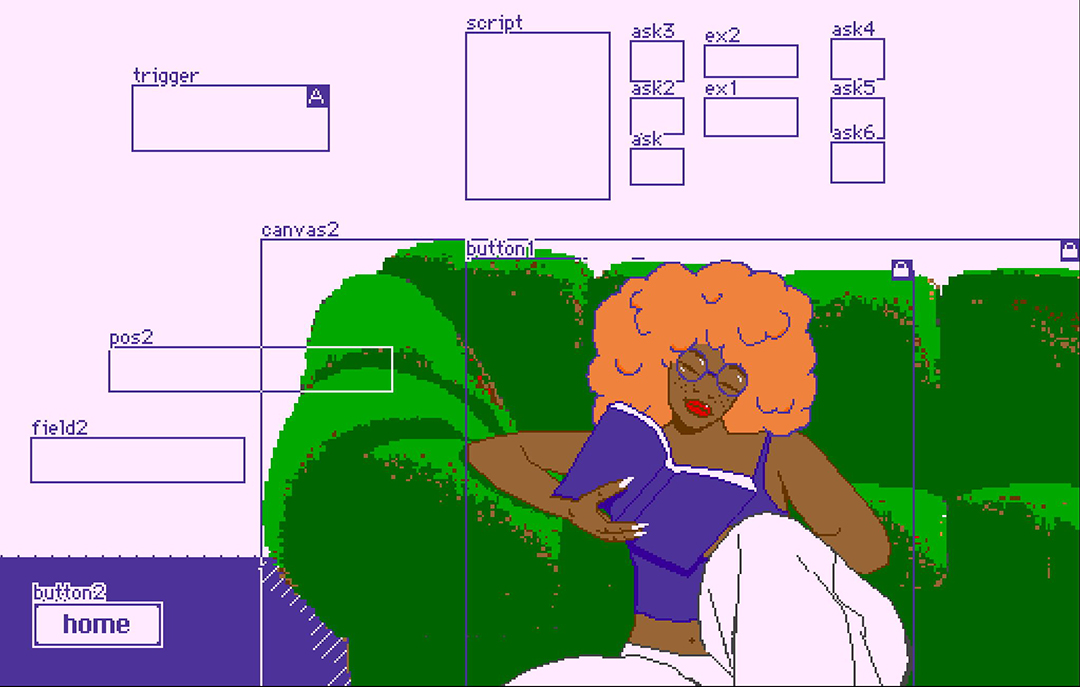Hi All!
I wanted to see if anyone had suggestions on how I can streamline some of my dialogue scenes, the way I'm doing it works but is so clunky and makes it difficult to make adjustments to. Here is a sample scene from better context.

I hope this isn't too confusing or that I'm missing something huge here, but I started off thinking I could just use dd.ask[] inside dd.chat. But no matter how I did it that just wasn't working.
r:dd.ask["What were you looking for?"("You.","Love","What are you reading?","Nevermind...")]
if r~0
//dialogue scene
//g:dd.ask["1","2","3"]
//if g~1 I want to trigger alerts and toggle values
//else other dialogue if r~1
//And so on...
So my solution was to make a ton of invisible fields and just have them evaluate them instead, but now I have 10 different fields to go between for one scene which is difficult to edit and debug:
r:dd.ask["What were you looking for?"("You.","Love","What are you reading?","Nevermind...")]
if r~0
dd.say[ask.value]
eval[field2.text () 1]
else if r~1
dd.say[ask3.value]
dd.close[]
pt.clear[]
else if r~2
dd.say[ask4.value]
dd.close[]
pt.clear[]
else
dd.say[ask5.value]
ver1.toggle["none"]
end
dd.close[]
pt.clear[]
end
end
end
I hope this makes any sense, I think playing through the scene I attached will explain it better than I can articulate :')
Anything helps!


